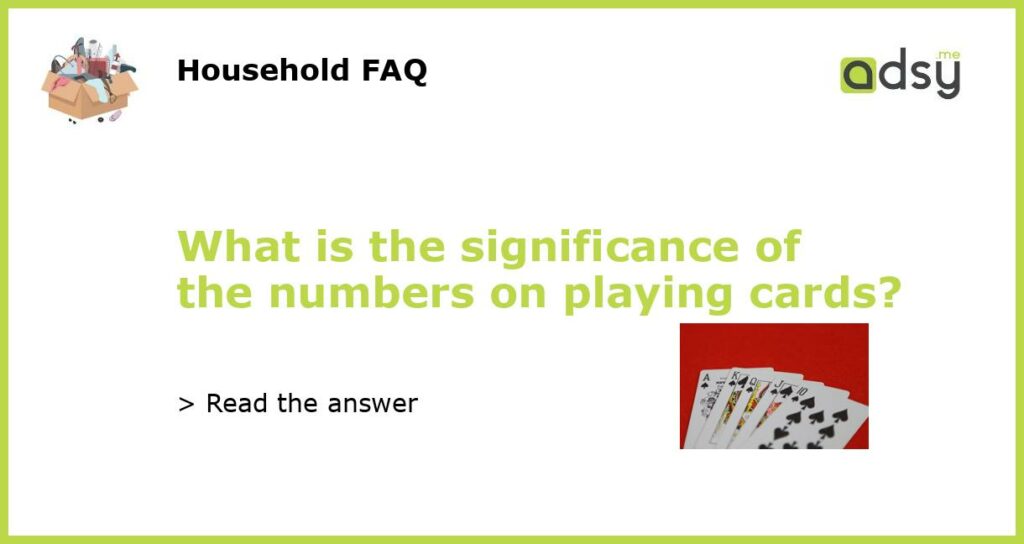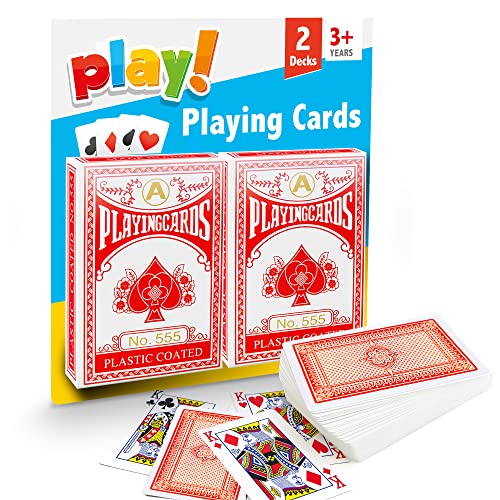Understanding the Significance of the Numbers on Playing Cards
Playing cards have been around for centuries and are a popular form of entertainment all over the world. Each card in a standard deck has a number or “pip” on it, ranging from one to ten. These numbers hold significance and add an extra layer of strategy and gameplay to various card games. In this article, we will explore the meanings and significance of the numbers on playing cards.
The Origins of the Numbers on Playing Cards
The use of numbers on playing cards can be traced back to their roots in 9th-century China. The Chinese were the first to start using playing cards as a form of entertainment, and they used symbols and characters to represent the different cards. It wasn’t until the 14th century in Europe that playing cards began to feature numerical values alongside the suits.
As playing cards spread throughout Europe, different countries adopted their own numbering systems. In Italy, for example, the numbers were represented using Roman numerals. In France, the cards featured Arabic numerals, which eventually became the standard for modern playing cards.
The Significance of the Numbers in Card Games
The numbers on playing cards serve multiple purposes in various card games. They can determine the value of the card, contribute to scoring, or influence gameplay decisions. Let’s take a closer look at how the numbers contribute to gameplay:
1. Value: In most games, the numbers on playing cards represent their face value. For instance, the number 2 card has a value of 2, the number 5 card has a value of 5, and so on. This allows players to compare and rank the cards, determining which is higher or lower in value.
2. Scoring: In certain card games, the numbers on playing cards contribute to scoring. For example, in the game of rummy, each number card carries a point value equal to its face value. So, a 5 card would be worth 5 points, a 7 card would be worth 7 points, and so on. Scoring systems vary from game to game, but the numbers always play a crucial role.
3. Gameplay Decisions: The numbers on playing cards can also influence the decisions players make during gameplay. In games like poker, players use the numbers to determine the strength of their hand. They compare the numbers on their cards to those on the table and make decisions based on the potential value of their hand. The numbers can also influence betting strategies and bluffing tactics.
Symbolism and Numerology
Besides their practical significance in gameplay, the numbers on playing cards have also been associated with symbolism and numerology. Some interpretations attach specific meanings to each number:
1. Ace: The number one is often associated with new beginnings, individuality, and leadership.
2. Two: This number represents balance, duality, and partnership.
3. Three: The number three is often associated with creativity, expression, and growth.
4. Four: This number represents stability, structure, and practicality.
5. Five: Five is associated with change, flexibility, and freedom.
These interpretations can vary depending on cultural beliefs and personal perspectives. Some people may find significance in the numbers on playing cards based on their own experiences and beliefs.
The numbers on playing cards hold significance both in terms of gameplay and symbolism. They allow players to determine the value of their cards, contribute to scoring, and influence gameplay decisions. Additionally, these numbers have been associated with various meanings in numerology and symbolism. Whether you enjoy playing card games for fun or are interested in exploring the deeper meanings behind the numbers, understanding the significance adds an extra layer of enjoyment to this timeless form of entertainment.






